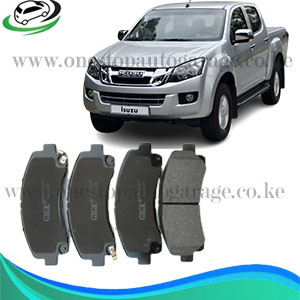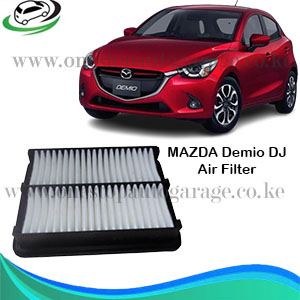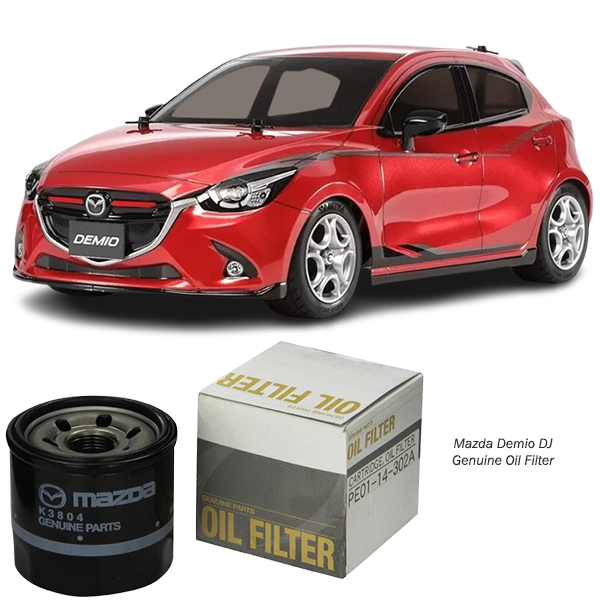-20%
Get Mazda Demio DJ Genuine Oil Filter PE01-14-302A in Kenya
An oil filter is a vital component of any internal combustion engine, designed to remove impurities and contaminants from engine oil. Genuine oil filters are specifically engineered for specific vehicle models, ensuring optimal performance, longevity, and engine protection. Let’s delve into a comprehensive understanding of genuine oil filters, their functions, benefits, types, and maintenance tips.
What is an Oil Filter?
An oil filter is a small yet indispensable device that cleans engine oil by trapping dirt, debris, metal particles, and other contaminants. These impurities can accumulate during engine operation and, if left unchecked, can lead to engine wear and damage.
Genuine oil filters are produced by the original equipment manufacturers (OEMs) or approved aftermarket companies. They are meticulously designed to meet the specifications of a particular engine, ensuring a perfect fit and seamless compatibility.
Functions of a Genuine Oil Filter
- Oil Purification:
The primary function of an oil filter is to remove impurities from engine oil, ensuring the oil remains clean and capable of lubricating engine parts efficiently. - Maintaining Oil Flow:
A genuine oil filter is designed to ensure consistent oil flow to critical engine components, even in harsh conditions or under high pressure. - Protecting the Engine:
By removing contaminants, oil filters reduce friction and wear on engine parts, extending the engine’s lifespan. - Preventing Oil Degradation:
Clean oil maintains its properties for a longer duration, preventing sludge formation and oil breakdown.
Types of Oil Filters
- Full-Flow Oil Filters:
These filters clean all the oil before it circulates through the engine. They are common in most modern vehicles. - Bypass Oil Filters:
Designed as secondary filters, these work in tandem with full-flow filters, focusing on filtering smaller particles to ensure better engine protection. - Spin-On Filters:
These are easy-to-replace units with a metal casing. Spin-on filters are widely used and consist of filter media enclosed in a canister. - Cartridge Filters:
Unlike spin-on filters, cartridge filters require installation inside a housing unit. They are more eco-friendly as they minimize waste. - Magnetic Filters:
These are designed to capture metal particles using a magnet, offering additional protection for engines prone to metal debris contamination.
Benefits of Using a Genuine Oil Filter
- Optimal Engine Performance:
Genuine oil filters are designed to match the specific requirements of the engine, ensuring consistent performance. - Enhanced Durability:
High-quality materials used in genuine filters provide better durability and resistance to wear, even under extreme operating conditions. - Perfect Fit:
OEM filters are custom-made for specific models, ensuring a secure fit without leaks or misalignments. - Improved Filtration Efficiency:
Genuine filters feature advanced filtration media that effectively trap microscopic contaminants. - Peace of Mind:
Using genuine oil filters reduces the risk of engine damage, as they adhere to strict quality and performance standards. - Manufacturer’s Warranty Compliance:
Many manufacturers require genuine parts to maintain the warranty, making genuine oil filters a safe choice.
Signs of a Worn-Out or Failing Oil Filter
- Decreased Oil Pressure:
A clogged oil filter can restrict oil flow, leading to a drop in oil pressure. - Engine Noise:
Insufficient lubrication due to a failing filter may cause unusual engine sounds, such as knocking or ticking. - Dirty Exhaust Smoke:
Excessive contaminants can pass through a faulty filter, leading to dark, dirty smoke from the exhaust. - Oil Leaks:
A damaged or improperly sealed oil filter can result in oil leaks. - Poor Engine Performance:
Reduced engine efficiency and sluggish acceleration may indicate oil contamination due to a failing filter.
Maintenance Tips for Genuine Oil Filters
- Regular Oil Changes:
Follow the manufacturer’s recommended oil change intervals, as the oil filter is typically replaced during this process. - Inspect for Damage:
Periodically check the oil filter for leaks, dents, or corrosion, which could compromise its performance. - Use the Right Filter:
Always use the filter specified by your vehicle’s manufacturer to ensure compatibility and optimal performance. - Check Installation:
Ensure the filter is installed correctly, as improper installation can lead to leaks or reduced filtration efficiency. - Monitor Oil Quality:
Check the oil’s color and consistency. If it appears excessively dirty or thick, it may be time to replace the filter and oil.
Why Choose Genuine Over Aftermarket Filters?
While aftermarket filters may seem like a cost-effective alternative, they often lack the precision and quality of genuine filters. Key advantages of genuine filters include:
- Exact Specifications: Engineered for a precise fit and function.
- Premium Materials: Manufactured with durable and high-performance materials.
- Rigorous Testing: Genuine filters undergo extensive testing for quality assurance.
- Warranty Protection: Ensures compliance with manufacturer warranties.
Aftermarket filters, on the other hand, may not offer the same level of filtration efficiency or durability, potentially risking engine performance and longevity.
The Role of Oil Filters in Modern Engines
Modern engines are more complex and powerful, operating at higher pressures and temperatures. As a result, oil filters play an even more critical role in protecting engines from wear and tear. Genuine oil filters incorporate advanced technologies, such as synthetic media and bypass valves, to meet these demands.
Environmental Considerations
Used oil filters contain residual oil and contaminants, making proper disposal essential. Recycling used filters helps recover valuable materials like steel and prevents environmental contamination. Many automotive shops and recycling centers accept used oil filters for safe processing.
Choosing the Right Genuine Oil Filter
When selecting an oil filter, consider the following:
- Vehicle Make and Model:
Use the filter recommended in your vehicle’s owner manual. - Driving Conditions:
For severe conditions like dusty environments or frequent towing, a filter with advanced filtration capabilities is ideal. - Oil Type:
Ensure the filter is compatible with the type of oil (synthetic, conventional, or blend) used in your engine.
Conclusion
A genuine oil filter is a small investment that offers significant benefits in maintaining your engine’s performance, efficiency, and longevity. By removing contaminants, ensuring consistent oil flow, and protecting critical engine components, genuine oil filters play an indispensable role in engine maintenance. Regularly replacing your oil filter with a genuine part ensures peace of mind, optimal performance, and adherence to manufacturer standards. Always prioritize quality over cost when it comes to such a vital component, as the long-term benefits far outweigh any short-term savings.
Follow us on Facebook for more parts.



